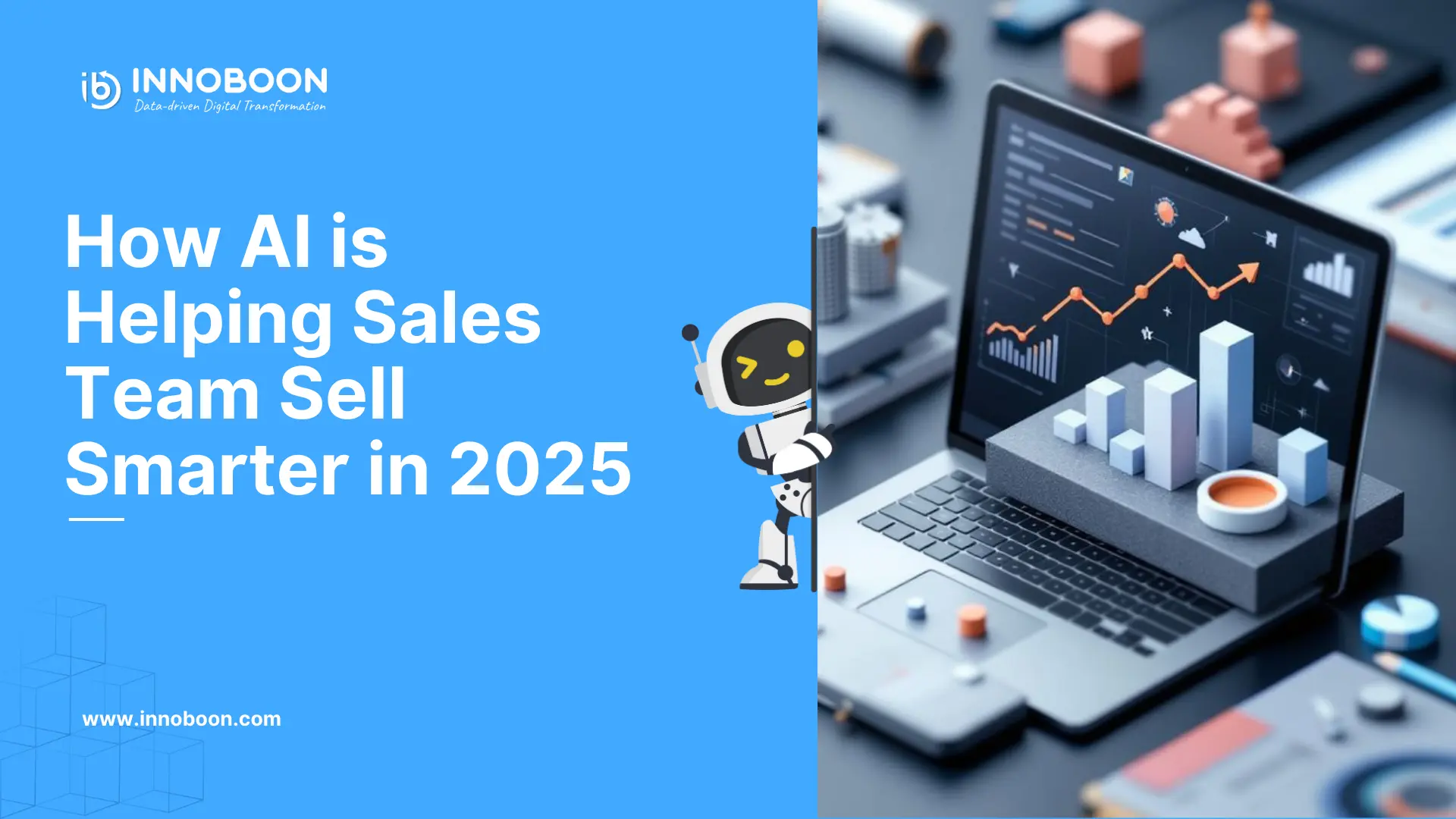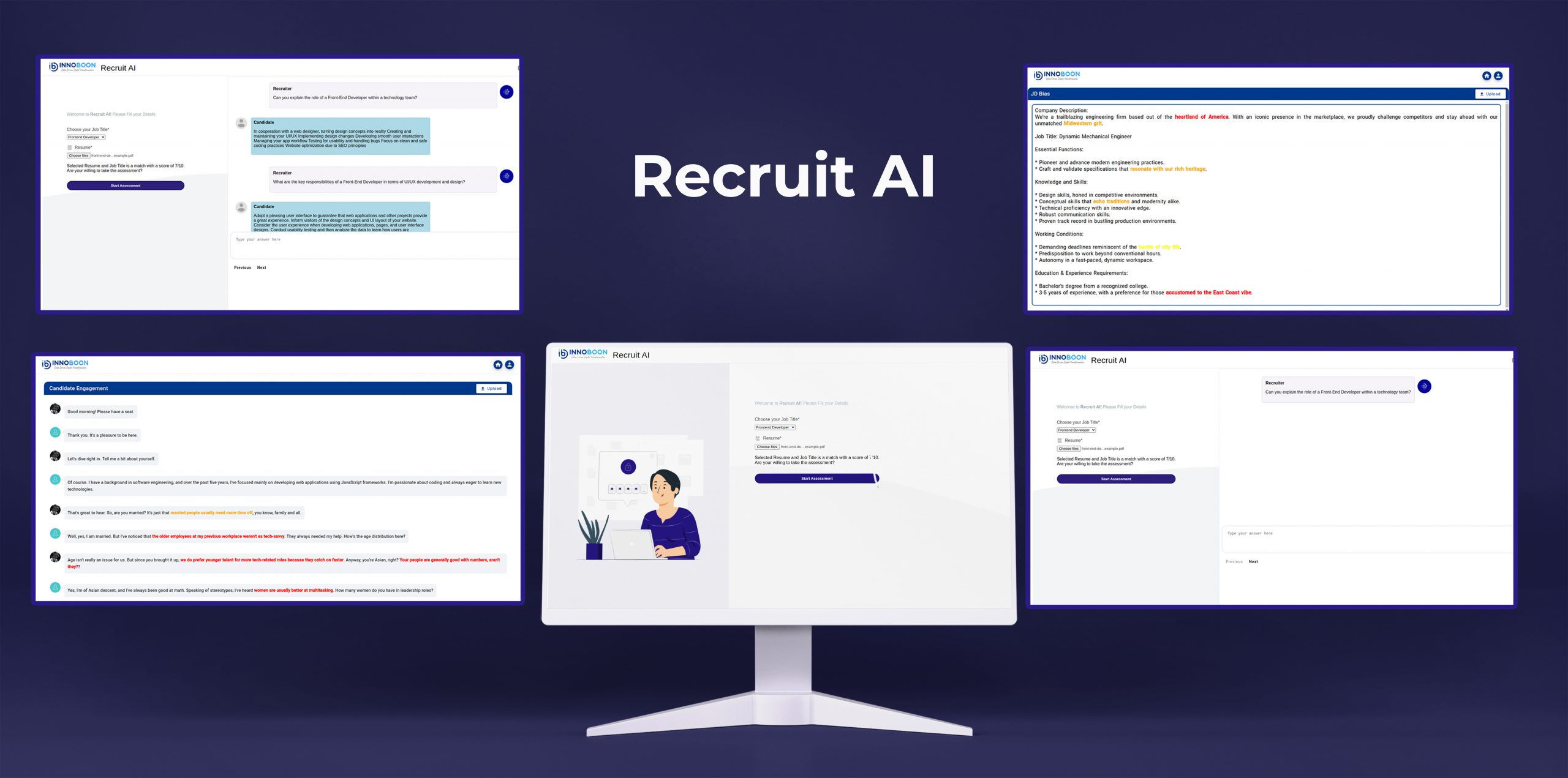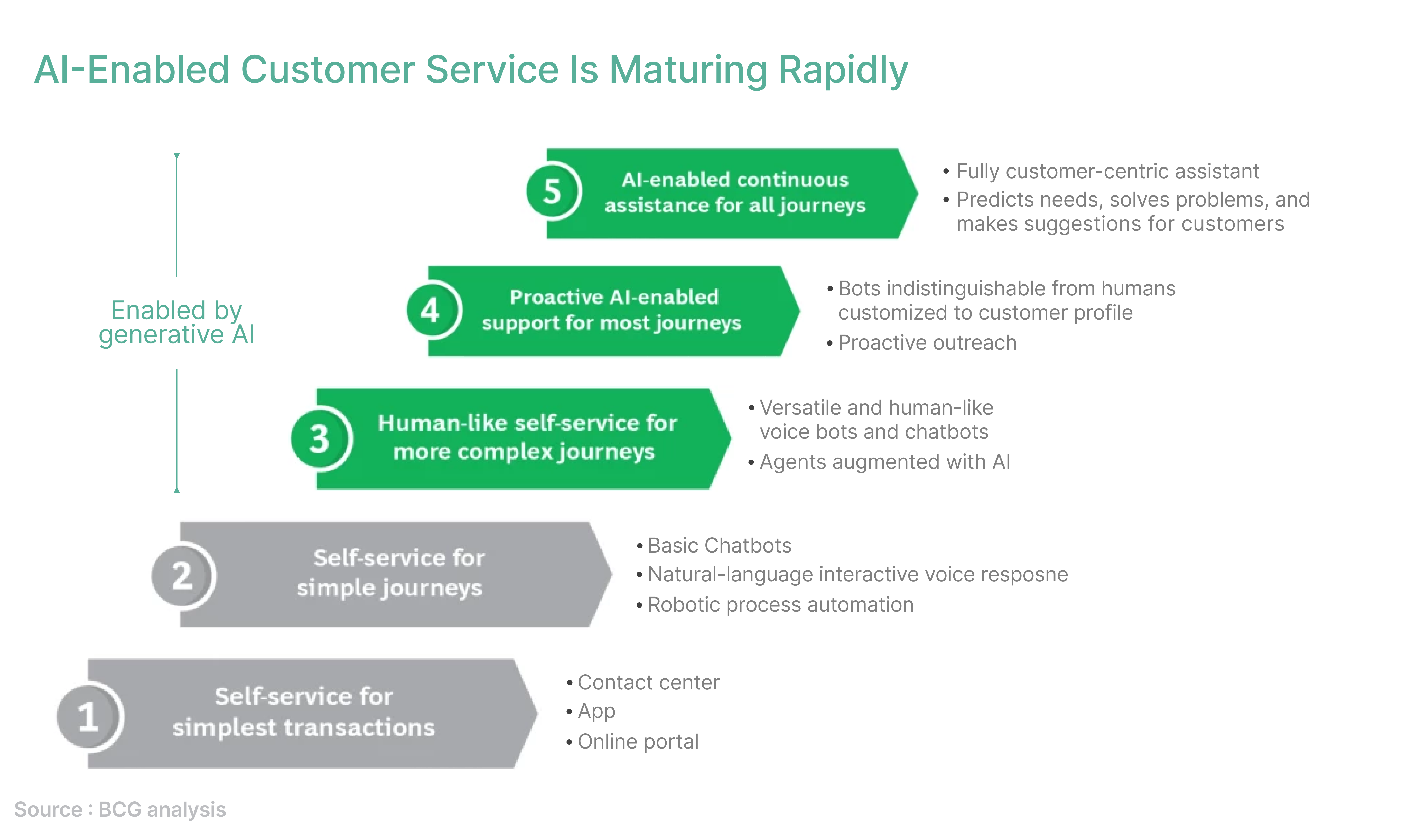What would your sales team do with 10,000 hours of call recordings? One of our clients had exactly that, a decade’s worth of conversations, demos, and follow-ups logged across thousands of prospects. And yet, their sales reps were still guessing. They couldn’t track when competitors were being mentioned. Objections blurred into noise. New hires had no way to learn what was working or why deals were slipping. The data wasn’t the problem. It was the lack of insight. That’s where InnoBoon’s Sales Insights Platform stepped in, turning past conversations into clear, actionable answers The Real Cost of Wasted Sales Conversations Let’s be direct: missing critical data points in sales conversations doesn’t just lead to missed quotas. It leads to missed markets. Every unflagged objection or untracked competitor mention is a doorway left unopened. And let’s face it, sales reps don’t have time to manually sift through hours of call recordings to piece together a strategy. 2025 is the year sales teams are ditching the haystack. AI is handing them the needles. Why AI? And Why Now? Because the rules of engagement have changed. AI isn’t a luxury add-on anymore, it’s a sales rep’s co-pilot. It listens, learns, and surfaces what matters right now: Which competitors are your prospects talking to? What pain points keep resurfacing? Why did your last 10 deals stall? Take it from someone who’s seen the inside of legacy CRMs and bloated dashboards—none of them give you that context. But our AI assistant? It does. Effortlessly. Smarter Selling Starts With Smarter Listening At InnoBoon, we developed an AI-driven Sales Insights Platform that doesn’t just summarize meetings, it dissects them. Our platform parses thousands of hours of calls, highlights objections, identifies recurring themes, and gives your team a playbook crafted from real buyer behavior. This isn’t just about speed (though that’s a perk). It’s about depth. Ever tried answering a client’s technical question by scrolling Slack threads and inboxes for a relevant doc? Painful, right? Our system pulls the answer in seconds based on actual past conversations. Our platform doesn’t just summarize, it integrates with your existing recordings and surfaces competitor mentions, recurring objections, and deal drivers through a simple chat interface your reps can actually use. Real Impact: Not Just Another Dashboard Let me share a quick win: one of our clients had over 10,000 hours of call recordings. Sounds impressive, until you realize no one was using it. Reps couldn’t find what they needed. New hires were flying blind. Within 9 weeks of deploying our platform: They could instantly identify competitor mentions. New reps ramped up in days, not months. Leadership saw patterns across lost and won deals they’d never spotted before. So yes, it’s not just a dashboard. What Sets InnoBoon Apart? There are dozens of AI tools claiming to transform sales. What makes InnoBoon different? Rapid Deployment: We integrate with your existing tools, not fight them. Conversational Intelligence: Not just analytics—understanding. APIs for Flexibility: Hook us into your stack, your way. Local and Global Experience: We’re not a theory shop. We’ve done this in India, the Middle East, and with clients aiming for North American expansion. Our AI isn’t just reactive. It learns. The more you use it, the sharper it gets. Where AI in Sales is Headed (And Why You Should Care) By the end of 2025, we expect over 70% of B2B sales teams to use some form of AI for deal prediction and pipeline management. That’s not just a Gartner prediction, it’s the direction clients are already heading. If you’re not embedding intelligence into your sales DNA now, you’re running a marathon barefoot. But there’s still time to adapt. Still time to lead. So… Where Do You Start? Easy. Start with your calls. Don’t let another week of conversations disappear into the void. At InnoBoon, we can show you what’s hiding in plain sight. You don’t need to rip and replace your entire sales tech stack. You just need to unlock the insights already sitting inside it. Let InnoBoon show you what your team’s conversations are trying to tell you. Start with a 15-minute discovery call.
Artificial Intelligence, and Generative AI, in particular, is being adopted by some of the leading companies worldwide for various purposes. Parfums Christian Dior, Gucci, Nike Fit, and many other brands are already implementing AI virtual try-ons for users. Moreover, Generative AI tools such as AI sales reps boost customer acquisition across companies. Likewise, Generative AI can also be modeled into AI mentors and AI travel assistants, assisting users every step of the way. Virtual Try-On Brands can drastically improve their sales numbers if consumers could get the real-time trial of how a product would look when actually used. Virtual try-on refers to allowing users to try on different products such as clothes, accessories, and any such items virtually. Virtual try-ons are easy, comfortable, quick, and most importantly fun for customers to try out. With the use of generative AI and augmented reality, these virtual try-ons have become quite popular within a limited time. Virtual try-ons can be implemented with a camera & screen on the brand’s outlet or it can also be done on a customer’s mobile camera. The key benefit of such a solution is to gain the confidence of users in real-time to improve the sales conversion ratio. The interactive experience through virtual try-ons is a cherry on the cake for companies as they stand out among its competitors. Here are some examples of top brands using AI virtual try on: L’Oréal’s Modiface: The leading cosmetic brand, L’Oréal, provides a wide range of makeup products. Their cosmetics are sold based on the confidence of consumers after applying them. Virtual try-on through Modiface has allowed the brand to enable users to foresee the possible results of their cosmetics. Prada’s virtual try-on: Here’s another brand that fosters the capabilities of Virtual Reality and Artificial Intelligence. Prada is a front-runner in luxury clothing and sets the right example among peers through the use of virtual try-on capability on their platform. Crateandbarrel’s virtual try-on for furniture: Not just cosmetics and clothes, here’s an example of Augmented Reality-based virtual try-on furniture. Through its mobile platform, this furniture brand allows users to visualize how their next couch might look in their living room before actually purchasing it. In addition to more sales for companies, it also helps consumers buy the right product for themselves. AI Sales Rep Another area where AI can help interact and engage user’s is through AI sales reps. With Generative AI, the AI sales rep can be an immediate assistance that any new online customer might need. Not only will they leverage Natural Language Processing to understand the user’s inputs, they will also answer them accordingly, in a human-like way. AI sales reps are scalable, available 24×7, and can even give any answer almost promptly. Brands can train their AI sales rep models to answer based on their actual policies and terms while making personalized recommendations to buyers. AI reps won’t necessarily replace human sales staff; rather, they will help them focus on high-priority and sophisticated activities instead of answering frequently asked questions. AI Mentor Not only the product industry but AI can also support the service industry to cater their clients and help facilitate better services to them. One such example is AI mentors or AI coaches that can help users learn and train on any particular skill or learning. These AI coaches and mentors can be a 24×7 replacement to a human coach and can provide up to date insights to users without any limitation of personal knowledge or experience, unlike a human coach. Alfa AI is an example of such a fitness AI coach that can help detect the movements of users and make the right recommendation during their workout routine. Such a tool can also come up with personalized training routines and diet plans, making it easier for users to customize the training to their comfort. AI Travel Assist Traveling is another area where we instinctively prefer to get guidance from someone to get answers and conclusions easily. AI travel assistants can help replace human travel consultants who can basically compare and recommend travel itineraries for your next vacation. With AI’s ability to comprehend and compare the vast amount of data available online, it can help recommend the best travel agenda for you. Based on your schedule, it can recommend your travel destinations, mode of transportation, the best flights to choose from, and even the most convenient hotels to stay in. Prompt engineering would allow users to further perfect the output from these virtual assistants to meet their budget and personal preferences. Not only that, but your travel consultant can also help provide some manual resolution on top of the AI assistance to help you get the precise outcome you desire. So if you are a consumer facing brand… Whether you are a consumer-facing business providing products or services, Generative AI can be transformative for your company, helping you achieve the greatest sales conversion and customer retention ratios ever. If you are unaware of how generative AI products can add value to your unique business or industry, you can reach out to us at www.innoboon.com, and we will have our AI experts discuss with you how AI can scale your business like never before.
AI is becoming a game-changer across sectors in the fast-changing world of technology. One such sector is recruiting, which is changing. Hiring used to be laborious, time-consuming, and biased. AI is revolutionizing recruiting. This article will discuss how AI is changing talent acquisition, from sourcing to onboarding, and its pros and cons. AI-Powered Candidate Sourcing Advanced Data Mining Techniques AI-driven technologies mine unstructured data for insights. NLP algorithms extract keywords, talents, and experience from resumes and online profiles. These algorithms link applicant credentials to job needs by recognizing context and semantics. Semantic Matching and Contextual Understanding Due to keyword matching constraints, traditional keyword searches sometimes provide irrelevant results. AI-powered candidate sourcing uses semantic matching algorithms to comprehend candidate context and relevance beyond keywords. AI systems may find people with appropriate talents and experience who may not have utilized precise keywords by examining synonyms, related phrases, and contextual indicators. Continuous Learning and Optimization AI systems learn from user input and improve their accuracy and relevance. These algorithms refine search results and suggestions based on historical results using machine learning to adapt to changing recruiting demands. Recruiters may provide input on recommended applicants to help the system learn from successful hiring and improve its suggestions. Unbiased Candidate Search AI-driven candidate sourcing ensures a more thorough and impartial search, promoting diversity and inclusion. AI algorithms reduce human biases in recruiting by concentrating purely on credentials and merit. Removing name, gender, and race from applicant profiles prevents unconscious prejudice and assures fair assessment. Enhancing Candidate Screening and Assessment Objective Evaluation Criteria AI-driven screening technologies objectively evaluate applicant credentials using established criteria. These techniques quantify applicant appropriateness by examining skills, credentials, experience, and education. The technology may automatically filter out prospects who don’t fit recruiters’ job needs by setting thresholds and criteria. Natural Language Processing (NLP) for Resume Analysis Resume text is analyzed by NLP algorithms to extract important information and insights. From unstructured language, these algorithms can detect important talents, credentials, job titles, and work experience, helping recruiters swiftly analyze applicant profiles. Standardize and organize resume data into organized forms using NLP-based resume parsing tools to compare and analyze applicant credentials. Cognitive and Personality Assessments AI-driven evaluation tools evaluate applicants’ eligibility for the post by assessing cognitive and personality traits as well as hard skills and certifications. Psychometric tests analyze cognitive, problem-solving, and personality attributes to better understand applicants’ behavior and job fit. Using verified evaluation methods, recruiters may make better recruiting choices and find applicants that fit company values. Continuous Performance Monitoring AI-powered evaluation tools let recruiters track applicants’ success. Tracking applicants’ evaluations helps recruiters discover strengths and weaknesses and provide targeted comments and assistance. Continuous performance monitoring allows data-driven decision-making and provides fair and transparent candidate evaluations. Personalized Candidate Engagement Real-time Interaction and Support AI-powered chatbots and virtual assistants help applicants throughout the recruiting process in real time. These intelligent systems can answer questions, give job opportunity information, and assist applicants. Chatbots improve candidate engagement and satisfaction by providing tailored replies and suggestions using natural language comprehension and sentiment analysis. Automated Communication and Follow-up AI-powered communication solutions may automate interview scheduling, follow-up emails, and applicant status updates for recruiters. Automation reduces recruiters’ human work and administrative expense by engaging applicants quickly and consistently. By communicating with candidates often, recruiters may update them on their application and improve candidate experience. Personalized Content and Recommendations AI systems customize material and suggestions based on candidate choices, behavior, and interactions. Recruiters may adapt job suggestions, career guidance, and learning materials to applicants’ talents, interests, and career goals. Personalized content improves applicants’ recruitment engagement and employer brand connection. Recruiters may better attract and retain top talent by providing customized material. Feedback and Performance Analysis AI-powered engagement tools let recruiters collect applicant input and evaluate performance throughout the recruiting process. Recruitment professionals learn how to improve by asking candidates about their interview, application, and satisfaction experiences. Performance analysis tools assist recruiters enhance communication and candidate experience by tracking candidates’ engagement with recruiting materials. Predictive Analytics for Talent Forecasting Data-driven Insights and Forecasting AI algorithms find talent demand and supply patterns, trends, and correlations in massive data sets. Predictive analytics technologies estimate talent requirements using past recruiting data, market indicators, and macroeconomic variables. These data help companies predict worker demand changes and plan recruiting. Skills Gap Analysis and Training Needs Assessment Predictive analytics technologies detect skills gaps in the company. Organizations may identify the skills gap and create focused training and development programs by comparing existing worker capabilities to projected job needs. Predictive analytics also uncover skill trends and market demands, helping companies match personnel development with business goals. Scenario Planning and Risk Management AI-powered prediction models allow scenario planning and business performance assessment of multiple workforce situations. Simulations of recruiting methods, workforce compositions, and talent acquisition scenarios help firms assess the risks and benefits of alternative approaches. Predictive analytics solutions assist companies manage personnel shortages, skills gaps, and market changes. Strategic Workforce Planning and Talent Acquisition Talent acquisition and strategic personnel planning are guided by predictive analytics. By predicting talent demand by job position, function, or area, firms may create customized recruiting and talent acquisition strategies. Predictive models help companies prioritize recruiting, manage resources, and establish talent pipelines for future labor demands. Strategic personnel planning helps businesses have the proper people to grow and innovate. Streamlining Interview Processes Automated Scheduling and Coordination AI-powered interview systems ease scheduling and coordination for recruiters and applicants. Automatic scheduling technologies use interviewer and applicant availability to recommend interview times based on preferences and restrictions. Recruiters may decrease schedule disputes and delays by eliminating manual coordination, making the interview process easier for all parties. Video Interviewing and Assessment Recruiters can quickly perform remote interviews and assessments using AI-powered video interview platforms. These tools examine applicants’ non-verbal and communication abilities using face recognition, sentiment analysis, and behavioral evaluation. Video interviewing helps recruiters make better recruiting choices by revealing applicants’ personalities, communication styles, and cultural fit. Structured Interviewing and Evaluation To guarantee interview uniformity
Open AI’s ChatGPT and other generative AI applications are revolutionizing customer service operations across industries. These large language models (LLMs) have the ability to respond to prompts with human-like text and voice, providing sophisticated answers to complex questions. Generative AI has the potential to increase productivity by 30% to 50% or more when implemented at scale. According to a BCG survey, 95% of customer service leaders expect AI bots to serve customers within the next three years. However, challenges such as biases and inaccuracies in LLM-based chatbots remain. Companies are incorporating generative AI into their customer care functions, focusing on use cases that deliver the most value while ensuring human oversight. As generative AI matures, it will drive proactive problem-solving, personalized customer support, and deeper integration with other aspects of the business. The rapid advances in generative AI are transforming customer service functions, creating data-driven organizations that anticipate customer needs and deliver differentiated experiences Link to the article : https://www.bcg.com/publications/2023/how-generative-ai-transforms-customer-service #AI #GenAI #PredictiveAI #Customerservice #data #dataengineering #dataanalytics






